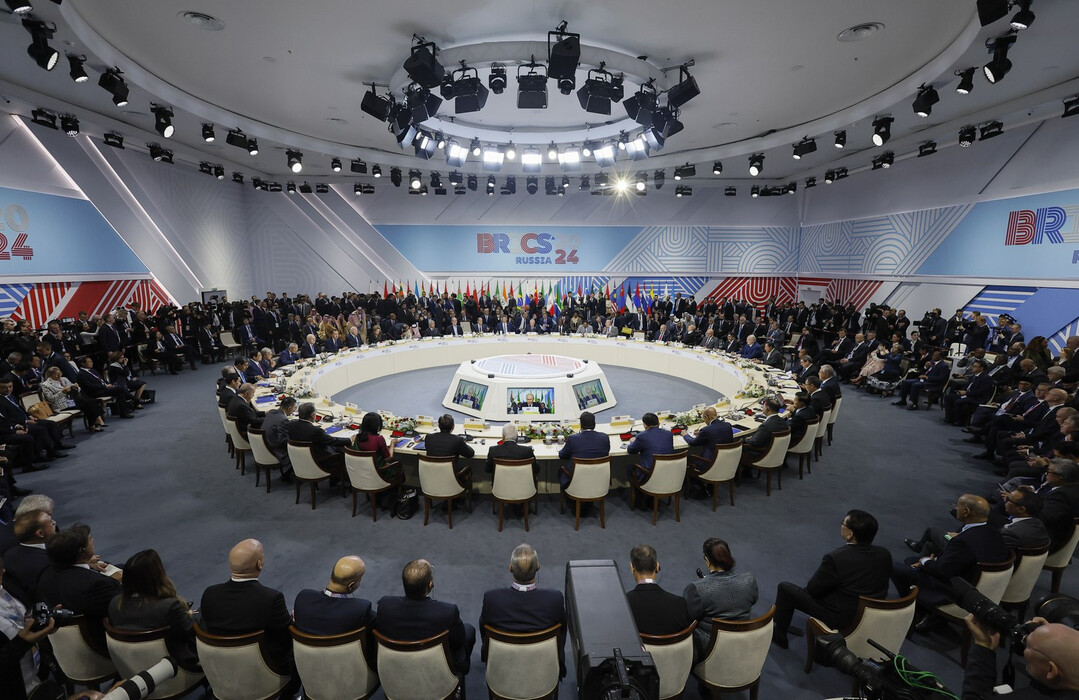
The Roscongress Foundation has encouraged Malaysian businesses to explore the vast opportunities offered by Russian companies, particularly in the realms of digitalization and information technology.
Alexander Stuglev, CEO of Roscongress Foundation, highlighted that Russia possesses extensive experience in digitalization and IT, making it capable of providing Malaysia with cutting-edge solutions in cybersecurity, software development, and telecommunications.
"Both countries can exchange best practices by integrating digital technologies into public services, smart cities, and industrial applications," he said at the World of Opportunities: Russia-ASEAN International Business Forum.
Stuglev also pointed out the significant potential for cooperation between Russia and Malaysia in the renewable energy sector. He noted that Malaysia aims to generate 70% of its electricity from renewable sources by 2050, and Russia is ready to share its expertise in wind, solar, and hydropower development.
Despite global challenges, Stuglev emphasized that the partnership between Malaysia and Russia continues to thrive, with notable growth in trade, finance, and energy cooperation. Trade between Russia and Malaysia increased by 11% in 2023 to $3.11 billion, compared to $2.79 billion in 2022.
Malaysian exports to Russia grew by 13% to $619.3 million in 2023, from $499.3 million in 2022. Russia's exports to Malaysia also increased by 10.8% to $2.49 billion in 2023, from $1.4 billion in 2022.
"Malaysia's exports of electrical and electronic equipment to Russia increased by a remarkable 96.9% to $154 million," Stuglev said. "Industrial products remain the backbone of Malaysian exports, increasing from $499.3 million in 2022 to $575.1 million in 2023."
Meanwhile, imports from Russia rose from $1.4 billion in 2022 to $2.05 billion in 2023.
Malaysian Prime Minister Anwar Ibrahim recently emphasized at the BRICS Summit in Kazan that Malaysia's membership in BRICS would strengthen trade and economic cooperation with Russia and other member countries.
"BRICS membership provides access to the markets of member countries, including Russia, which will increase both exports and imports. The alliance actively promotes investment cooperation among member countries," he said.
Anwar said this would allow Malaysian companies to explore opportunities in Russian projects related to energy, infrastructure, and technology. "Conversely, Russian investors can consider projects in Malaysia, particularly in advanced technologies and manufacturing," he added.
Stuglev noted that both countries possess significant experience in the energy sector. "There is significant potential for joint projects in the oil, gas, and renewable energy sectors within the BRICS framework," he said.
He highlighted that the Roscongress Foundation is committed to facilitating cooperation through major events such as the St Petersburg International Economic Forum (SPIEF) and the Eastern Economic Forum (EEF). "These forums serve as platforms to discuss BRICS cooperation, strengthen business ties, develop joint projects, and formalize agreements between Malaysian and Russian companies," he said.
Stuglev revealed that a "Russia-ASEAN" strategy for trade and investment cooperation is set to be signed in 2025. This document will build upon the 2021-2025 roadmap and introduce clear indicators for evaluating the effectiveness of new areas of cooperation and joint projects.
"Economic relations between Russia, Malaysia, and ASEAN have significant potential for dynamic growth in the next five years. Last year saw active exchanges in trade, investment, digitalization, creative economy, and tourism. Climate cooperation has also become a key area of focus. In August, Russia and ASEAN held the first expert consultations on climate, and we plan to continue such meetings regularly," he said.
Trade between Russia and ASEAN countries reached a record high of $22 billion in 2023, reflecting a 14.6% increase. This growth continued in 2024, reaching $17 billion in the first half of the year, demonstrating strong mutual interest and a deepening of cooperation.
[Copyright (c) Global Economic Times. All Rights Reserved.]






























